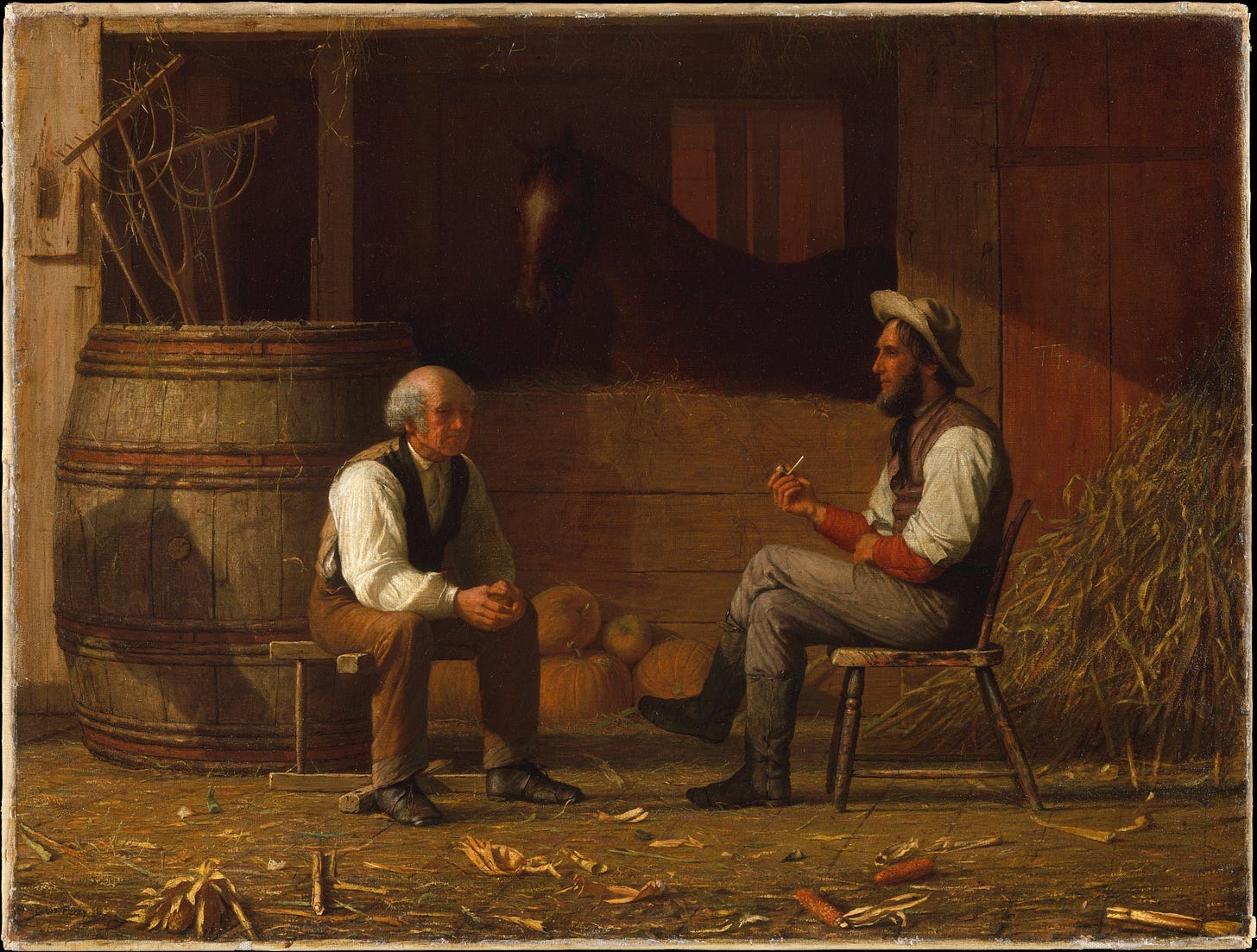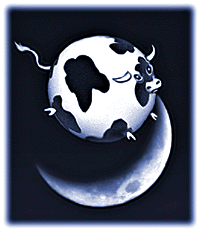This is the Intermission of My Medieval Farming Life: a series about farming as a job, but without electricity, gas, machinery, fertilizers, indoor plumbing, or other important inventions that Industrial Revolutions brought.
See part 1 here for manure seasons, part 2 for invitation to a slaughter, and part 3 for a year of no importance. See full series here.
Some friends reached out privately and asked if the essays about manure picking, livestock slaughtering etc. are real stories. My answer on the record: yes, they are all first-hand, personal, real experiences. I only changed people’s names.
But writing this series is very difficult. Taxing, to be exact. Partly because I’ve never liked talking about myself.
As F. Scott Fitzgerald put it, I am within and without, enchanted by the inexhaustible variety of life — and the enchanting parts are always other people’s lives. On midnight buses and trains, I stayed up to hear many strangers tell me their life stories. When they started asking about mine, I always deflected conversations back to them.
Not because I’m a top-secret agent like Austin Powers. The reason is that other people’s lives are always more interesting than mine. My life is too familiar to me; there is nothing new. I’d rather pay attention to other people, to learn about new varieties of life.

The other reason for the difficulty, is because I had to decide what essential things to not write, and meanwhile, keeping pre-industrial farming life easy to understand.
I didn’t write about the local geography and hydrology, where hills rise and rivers flow, or how roads and paths criss-cross each other.
Or the flora and fauna, what flowers grow along the rivers, what animals roam in the hills.
Or cropping practices, species, seasons, and land distributions.
Or customs that govern things from host-guest etiquette to marital relationships, in times of abundance and deficiency.
Or trades and social expectations that made Luke the butcher’s apprentice, that always directed those “you got education” comments to me.
Or people from different families, with many skills and practices, whence they came, where they went….
Had I written about these, Earthly Fortunes would have turned into the Encyclopedia of a Place that No-one Else Cares About.
Such is my battle: deciding what not to write. What’s worse, to write means to use words, and no matter our writing skills, words are terrible envoys of our experiences: they compress our realities full of smells, sounds, heats, and haptics into flat letters and punctuation. My horror on the edge of a drought-induced famine was stripped of arid air and scorching sun, then pressed into capital and lowercase letters. The fuzzy-haired, loud, and fast pig slaughtered at a wedding was squeezed into flickering pixels that show up as words on screens.
Like a real cow, our experiences are rich and hairy. Like a spherical cow in a vacuum, words are bare and smooth. This is a simple truth: words capture only a sliver of our full experiences. Then, using words, I had to decide which essential details to shed, the details that would have enriched the stories, that would have made pre-industrial farming life easier to understand.

Why did I write this series, if it was indeed difficult?
Because I hope that these personal experiences, however bare and simple when presented in words, could entertain and educate. I hope that they could bring more attention to a variety of life — a life that is absent from the sights and minds of many city-folks. Some friends had asked if my farming life was like English pastoral paintings, where I lounged on green pastures, and had fresh milk and meat at my disposal. Their eyeballs popped out, when I told them about how I coped with a normal drought, and that meat was meant for special occasions. They prompted me to write about these experiences.
TL;DR, I hope that we no longer romanticize rural agriculture work.
Why the Intermission?
Earthly Fortunes is not about me, or the one life that I’m too familiar with. There are many more colorful varieties of life that I’ve been allowed to peek at or journey into; I’d like to write about them.
What’s next?
The series My Medieval Farming Life is not finished! New parts will be published on occasion.
Next, we will dive into the enchanting, inexhaustible variety of life, of people, places, things, of The Unseen that lies in the foundations of our past, present, and future.
Join me. It’s going to be a fun ride.
Thank you for reading Earthly Fortunes. If you like it, please share it. Subscribe for free to hear more about the inexhaustible, enchanting varieties of life.
What varieties of life enchant you the most? Let me know in the comments or DM me on Twitter!



